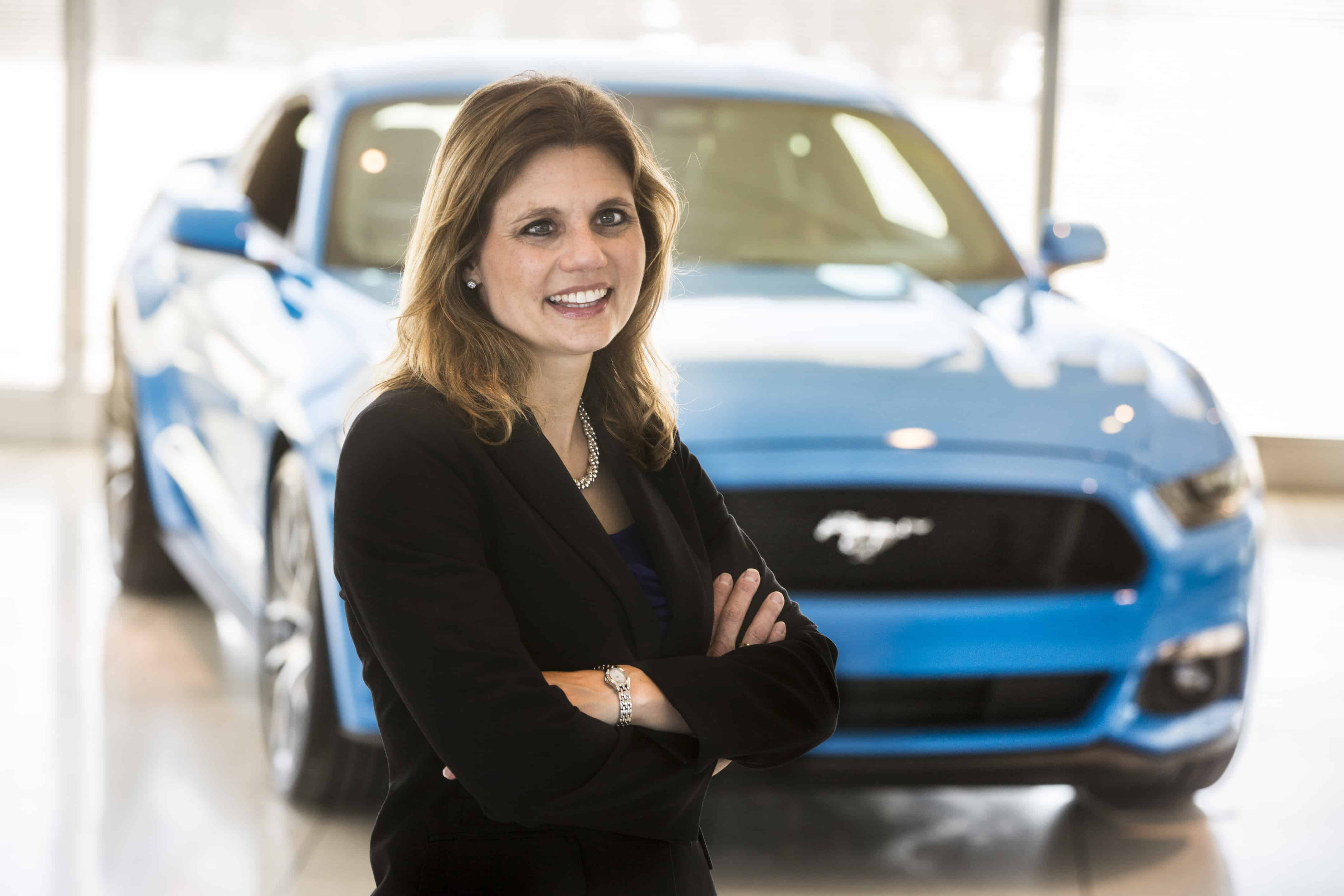Ford’s Female Engineers Drive Sustainability with U.S. Soy
Watch the video featuring Cynthia Flanigan, chief engineer of vehicle research and technology at Ford Motor Company, as she shares her story about how Ford continues to innovate with U.S. soy for sustainability and performance.
As part of a trailblazing team of women engineers, Flanigan played a key role in developing a soy-based foam. The United Soybean Board (USB) supported the research that led to commercialization of the product that Ford now uses in the seat cushions and head rests of every vehicle it makes in North America. Through their work in the sustainable materials lab, the Ford team has developed other uses for soy including in rubber flap pads on the F-150 truck and in seals, gaskets and even some air filters.
“In general, the engineering and automotive fields have been more male-dominated, but I have been really fortunate in that I have had an amazing ecosystem from females as well as amazing male mentors and advocates,” said Flanigan.

USB Collegiate Biobased Network Member Innovates for Future with Soy
In just a few short years, Dr. Alper Kiziltas has risen through the ranks from intern to renowned scientist, helping Ford Motor Company advance its sustainability goals with biobased materials, like soy.
During a 2013 summer Ford internship, Kizaltas was then a Ph.D. candidate and United Soybean Board (USB) Collegiate Biobased Network (CBN) member. Kizaltas worked with Ford’s Cynthia Flanigan and others in the sustainable materials lab at Ford to research ways to expand the use of soy in vehicles. Fast forward to June of 2014 when Ford hired him as a research scientist in the Sustainability and Emerging Materials Division. Since then, Kiziltas has earned numerous awards, secured three patents for sustainable and advanced materials, written for more than 60 external publications, and co-authored two book chapters. His work is helping Ford continue to innovate and drive even greater use of soy and other biobased materials in vehicles.
Not yet a member of CBN? Join here to connect with resources and other students interested in biobased products.
“We have made great strides with soy-based materials, lessening our environmental impact, reducing dependence on fossil fuels, and cutting CO2 emissions,” Kiziltas said. “Many customers – especially Millennials and Generation Zers – look to purchase more sustainable products, and we share their goal to reduce our footprint.”
Ford uses soy-based polyurethane foams in seat cushions, seat backs and headrests in all vehicles produced in North America. The USB funding supported joint research with Ford that led to commercialization of the foam. Soy is also being used in rubber flap pads on the F-150 truck and in seals, gaskets and even some air filters.
Ford estimates that it uses 31,251 soybeans per vehicle, resulting in a 251 million pound reduction in carbon dioxide emissions. The company continues to look for additional ways to incorporate the use of soy and other renewable materials in its vehicles and one day hopes to completely eliminate the use of petroleum-based parts.
One area of focus for Kiziltas is working to increase the content of soy-based polyols in the foam formulations. His work involves incorporating various types of nanofillers into the formulation, which can deliver significant improvements in strength, density and environmental impact while also being cost effective.
During his time at Ford, Kiziltas has led research projects in a variety of polymer-based applications with soy and other biobased materials including cellulose, wheat straw, rice hulls, castor oil-based polyol, wood, kenaf, and coconut fibers.
It’s no surprise that Ford is leading the industry in pursuit of sustainable solutions. Founder Henry Ford helped to pioneer biobased products in America and envisioned one day being able to “grow” a car.
Because of this history, Kiziltas notes that “soy is very special for us and we’re looking for new applications every day. ”

